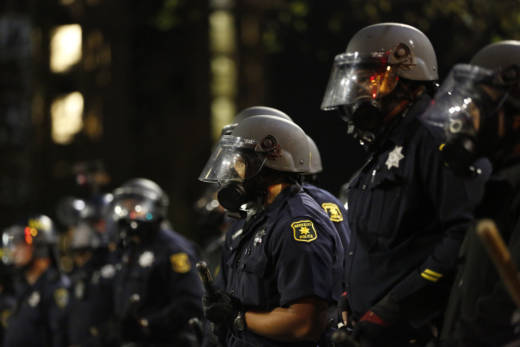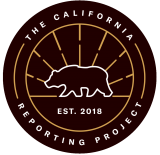Hayward sought to charge the lawyers guild $3,000 for the time two employees spent preparing the video.
The guild challenged those costs in court, arguing that an agency may only pass on the direct cost to duplicate a record under the Public Records Act. For paper records, those charges can include costs for paper and toner, for instance, but not for time spent blacking out any portion of a document.
However, the Public Records Act was amended in 2000 to allow agencies to charge for responses that require “data compilation, extraction, or programming.” Hayward argued that redacting the videos was akin to “extracting” information from them. The National Lawyers Guild argued the provision was meant to include situations where agencies produce parts of databases — a task that may require computer programming — but not redaction.
“The question here is what the Legislature meant by the term ‘extraction,’ ” the ruling by Justice Leondra Kruger says.
The opinion continues:
“[T]he term ‘extraction’ does not cover every process that might be colloquially described as ‘taking information out.’ It does not, for example, cover time spent searching for responsive records in an email inbox or a computer’s documents folder. Just as agencies cannot recover the costs of searching through a filing cabinet for paper records, they cannot recover comparable costs for electronic records. Nor, for similar reasons, does ‘extraction’ cover the cost of redacting exempt data from otherwise producible electronic records.”
The ruling is much more than an affirmation for those advocating for increased access to public records, and its reach goes far beyond Hayward's body camera videos from 2014.
"As we see from the police killing of George Floyd in Minneapolis just this week, and other killings, police violence is as much of an issue today as it was in 2014 when we requested this body camera video," said Rachel Lederman, a civil rights attorney and former head of the National Lawyers Guild's Bay Area Chapter. "This is a great ruling."
It’s likely to change the landscape regarding access to police body camera footage and other internal law enforcement files that must be released under two recent state laws that grant broader public access, Senate Bill 1421 and Assembly Bill 748.
The laws both took effect last year. SB 1421 requires police agencies, for the first time in 40 years, to provide records from internal investigations into serious uses of force by law enforcement officers. It similarly requires police agencies to disclose records from misconduct investigations involving allegations of sexual assault and dishonesty against officers. Those investigations often include multimedia files, including audio recordings of interrogations and video from surveillance cameras and body cameras.

